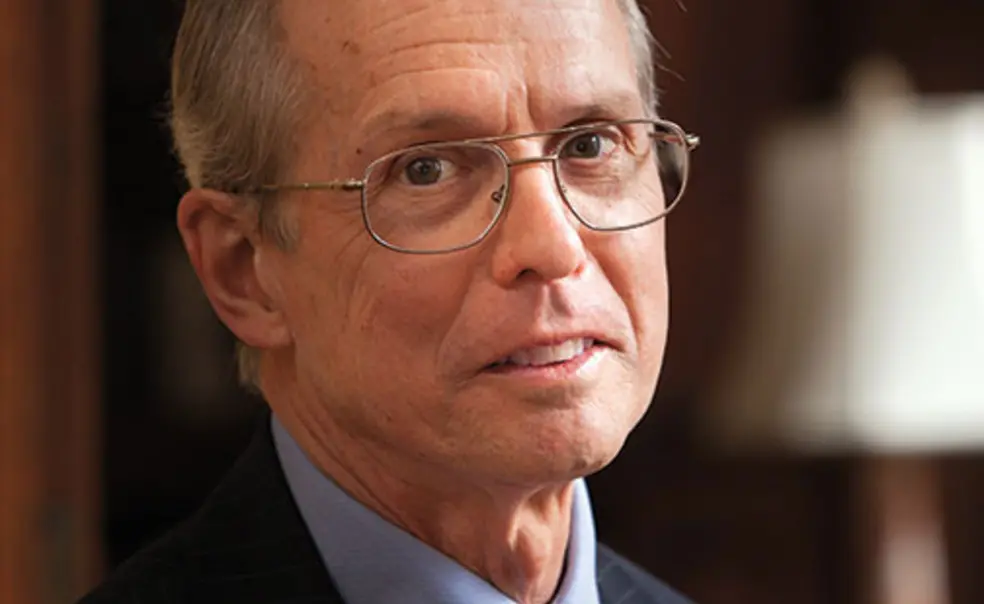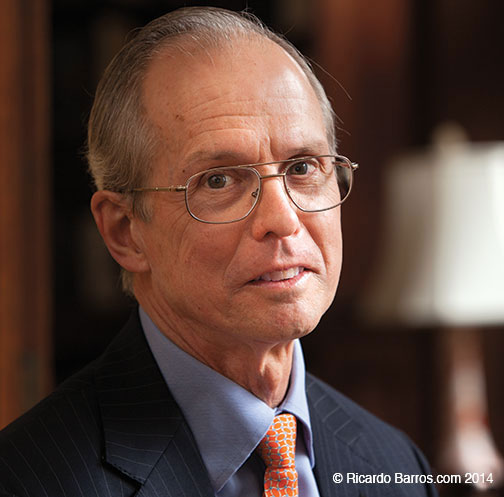Q&A: William B. Russel, Beyond the Academy
As he steps down, dean urges grad students to consider a broader range of careers
When William B. Russel was a young assistant professor at Princeton, he and his wife, Priscilla, visited the home of a married couple, both graduate students. “As discussions would inevitably go in those days,” Russel said, “they talked about feeling like they were second-class citizens at the University.” That conversation was in Russel’s mind when he became dean of the graduate school in 2002, and he recalled it in an interview with PAW last month as he discussed initiatives and challenges affecting grad students during his tenure. Russel, who stepped down as dean March 31, will take a year’s sabbatical and then transfer to emeritus status.
What big issues face the graduate school today?
We have terrific Ph.D. programs that prepare students in and beyond their disciplines, equipping them for careers in the academy as well as others that they don’t recognize. The task ahead is to enlighten graduate students about careers beyond the academy, or even within the academy beyond tenure-track positions. I have confidence that Career Services will provide guidance for graduate students in the future.
Are there any changes to the academic program that would be beneficial?
From the graduate school’s point of view, students should be qualified — that is, pass the general examination — by the end of the second year. In most of the sciences and engineering, the student has begun research by the first summer, and the general exam is probably completed in the middle of the second year. In some other departments, that step is not accomplished until the last half of the third year. The question is: How much of the breadth of the field covered by the department should the student grasp? This accounts for much of the significant differences in time-to-degree among the divisions [ranging from an average of 4.9 years in the natural sciences to 6.5 years in the humanities].
What about graduate students’ concerns about housing?
Quality is hugely better with the Lakeside graduate housing [which will open next fall], but the amount of graduate-student housing still remains an issue. The commitment to housing 70 percent of the regularly enrolled graduate students is probably not far from the saturation point for housing, though many would debate that. Clearly we can never house all the graduate students, so bringing them to completion of their Ph.D.s sooner might be a better strategy.
Are efforts to diversify the graduate-student body working?
I’m optimistic with the response of faculty in many departments to the emphasis provided by the Trustee Committee on Diversity. One small measure is that the number of underrepresented students who were admitted to Ph.D. programs increased significantly this year.
How have graduate-alumni relations changed?
There has been a huge step forward in the past few years. An Association of Princeton Graduate Alumni commission triggered a commitment from the University to assemble a graduate-alumni team in the Alumni Council with a link to the graduate school. And that has certainly worked well. Everybody realized that the centennial of the Graduate College was approaching and should be capitalized on — and they did that beautifully. Looking ahead, the original thought was to hold departmentally based reunions on campus during the academic year, so that alumni would meet the current faculty and graduate students. That turns out to be a lot of work, but will remain part of the strategy.
Interview conducted and condensed by W.R.O.













1 Response
Kai Chan *03
10 Years AgoPreparing Graduate Students
William B. Russel hits the nail on the head when he says that the “task ahead is to enlighten graduate students about careers beyond the academy, or even within the academy beyond tenure-track positions” (On the Campus, April 2). As a Ph.D. alum, I couldn’t agree more. In keeping with various seminars and events at Princeton that helped me envision careers beyond the academy, I’m now working hard to further these same goals as an associate professor and grad-program adviser at the University of British Columbia.
One of my biggest accomplishments in this space is a graduate internship program. After five years of rave reviews, we hope to continue the program indefinitely. Read more about the program here: www.stanford.edu/group/leopoldleadership/cgi-bin/wordpress/?p=2093.
Thanks to Dean Russel for his strong and longstanding efforts to make graduate education at Princeton broadly relevant in this 21st century.